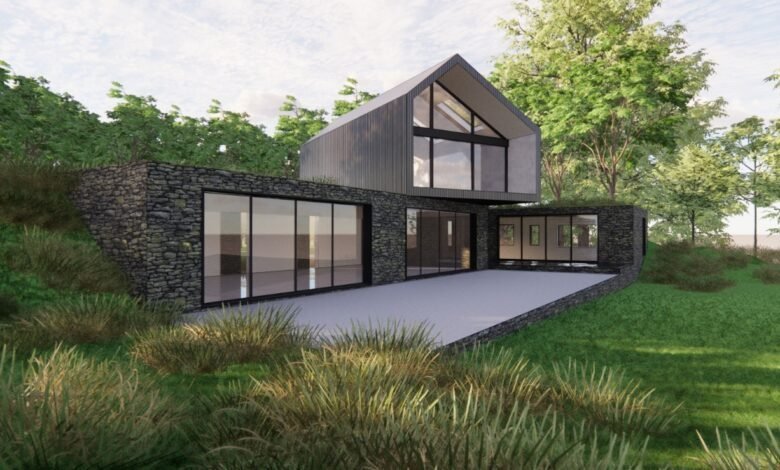Guide to House Extension Costs in the UK: Cost Breakdown and Expert Advice

Are you considering extending your house in the UK but need clarification on the cost breakdown? Look no further! This comprehensive guide will explore the factors influencing house extension costs and provide expert advice to help you budget your project effectively.
Whether you dream of a spacious kitchen extension, a stunning loft conversion, or an additional bedroom for your growing family, understanding the cost implications is essential. We will delve into the details, from materials and labour to planning permission and architectural fees, leaving no stone unturned.
Our expert contributors bring years of experience in the construction industry, providing valuable insights on keeping costs in check without compromising quality. We will also discuss common cost pitfalls and offer practical tips to avoid them. With this guide, you’ll have the knowledge and confidence to navigate the complexities of house extension costs in the UK, ensuring a successful project that meets your vision and budget.
Get ready to embark on your house extension cost with this informative guide. Let’s make your dream space a reality!
Understanding House Extensions
House extensions are popular among UK homeowners wishing to add more space and functionality to their existing properties. A house extension involves expanding the footprint of your home to create additional living areas or rooms. It can be a cost-effective alternative to moving to a larger property and allows you to customise your living space according to your needs and preferences.
There are several types of house extensions, including rear extensions, side extensions, loft conversions, and conservatories. Each type has its own unique considerations and cost implications. Before diving into the cost breakdown, it’s essential to understand the different factors that can affect the overall cost of your house extension project.
Factors That Affect House Extension Costs
- Size and Complexity of the Extension: One of the primary factors influencing the cost of a house extension is its size and complexity. More significant extensions with intricate designs and structural requirements will naturally cost more than smaller, simpler ones. The number of rooms, floors, and unique features such as skylights or bi-fold doors can also contribute to the complexity and cost.
- Location: The location of your property plays a significant role in determining the cost of a house extension. Prices can vary greatly depending on the region, with London and the South East generally being more expensive than other parts of the UK. Factors such as local labour rates, availability of materials, and accessibility to the site can all impact the overall cost.
- Architectural Design and Planning Permission: It is crucial to hire an architect or architectural designer to create detailed plans for your house extension. Their expertise ensures that the design is aesthetically pleasing and structurally sound. The complexity of the architectural design can affect the cost, as more intricate designs may require additional engineering or structural work. Additionally, obtaining planning permission from your local council may incur fees and add to the overall cost.
- Materials and Finishes: Choosing materials and finishes for your house extension can significantly impact costs. High-end materials and finishes will naturally be more expensive than basic or standard options. Discussing your budget and preferences with your architect or builder can help you balance quality and cost.
- Site Preparation and Access: The site condition where your house extension will be built can affect the cost. If extensive groundwork or site preparation is required, it may add to the overall cost. Similarly, limited access to the site, such as narrow alleyways or restricted parking, can increase labour costs and logistical challenges.
- Building Regulations and Compliance: Ensuring your house extension meets all relevant building regulations and compliance requirements is essential. This may involve additional costs, such as structural calculations, energy efficiency measures, and inspections by building control authorities. Investigating these costs is necessary to ensure your extension is legally compliant and safe.
Understanding these factors will give you a better idea of how various elements contribute to the overall cost of your house extension project. In the next section, we will break down the costs of a typical house extension to help you budget effectively.
Cost Breakdown of a House Extension
To accurately estimate the cost of a house extension, it’s essential to consider the various elements involved. The following cost breakdown provides a general overview of the expenses you can expect to incur during a house extension project:
- Architectural Fees: Hiring an architect or architectural designer is crucial for creating detailed plans and obtaining planning permission. Architectural fees typically range from 10% to 15% of the total project cost. This includes initial consultations, site surveys, design development, and submission of planning applications.
- Planning Permission Fees: Depending on the complexity of your house extension and the local council’s requirements, you may need to pay planning permission fees. These fees vary, but they average from £200 to £2,000. It’s essential to check with your local council for the exact fee structure.
- Structural Engineer Fees: If your house extension involves significant structural changes, you may need to hire a structural engineer. Their fees can range from £500 to £3,000, depending on the project’s complexity. The structural engineer will ensure that the proposed design meets all necessary structural requirements and regulations.
- Building Regulations and Compliance: Building regulations ensure that your house extension meets safety and quality standards. The cost of compliance can vary depending on the size and complexity of the project. This includes fees for structural calculations, energy efficiency measures, and inspections by building control authorities. On average, you can expect to spend around £1,000 to £2,000 on compliance with building regulations.
- Construction Costs: Construction costs comprise a significant portion of the overall house extension budget. These costs include materials, labour, and any subcontractor fees. The price per square meter can vary depending on location, complexity, and finishes. On average, construction costs range from £1,000 to £2,500 per square meter.
- VAT: Value-added Tax (VAT) applies to most construction services and materials. The standard VAT rate in the UK is 20%. To avoid surprises, it’s essential to factor in VAT when budgeting for your house extension.
- Contingency Fund: Setting aside a contingency fund of around 10% to 15% of the total project cost is wise. This fund is a buffer for any unexpected expenses during construction, such as additional structural work or unforeseen site conditions.
Considering these cost breakdown elements, you can create a more accurate home extension project budget. However, it’s crucial to note that these costs are estimates, and actual expenses may vary depending on individual circumstances and project specifications.


Average House Extension Costs in the UK
The cost of a house extension in the UK can vary significantly depending on several factors, including location, size, complexity, and finishes. To provide you with a general idea, here are the average costs for some common types of house extensions:
- Rear Extension: A rear extension is popular for homeowners looking to extend their kitchen or living area. On average, a rear extension can cost between £1,500 and £2,500 per square meter. For a 20-square-meter extension, the total cost would range from £30,000 to £50,000.
- Side Extension: A side extension allows you to expand the width of your property, creating extra living space or additional rooms. Similar to a rear extension, the average cost of a side extension ranges from £1,500 to £2,500 per square meter.
- Loft Conversion: Converting your loft into a habitable space is a cost-effective way to add an extra bedroom or living area to your home. The average cost of a loft conversion is between £25,000 and £45,000, depending on the size and complexity of the project.
- Conservatory: A conservatory provides a versatile space that can be used as a dining area, home office, or relaxation space. The average cost of a conservatory ranges from £10,000 to £30,000, depending on the size, materials, and finishes.
It’s important to note that these are average costs and can vary significantly depending on individual circumstances. Factors such as location, material choices, and architectural design can all influence the final price of your house extension. Consulting with professionals and obtaining detailed quotes will give you a more accurate estimate for your specific project.
Expert Advice on Budgeting for a House Extension
Budgeting for a house extension requires careful planning and consideration. Here are some expert tips to help you stay on track and avoid common cost pitfalls:
- Define Your Priorities: Before embarking on a house extension project, clearly define your priorities. Decide which areas of your home need the most expansion or improvement. This will help you allocate your budget effectively and avoid overspending on unnecessary features.
- Set a Realistic Budget: A realistic budget is crucial to avoid financial strain during the project. Research the average costs for similar house extensions in your area and consult with professionals for accurate estimates. Include a contingency fund in your budget to account for unforeseen expenses.
- Get Multiple Quotes: Don’t settle for the first quote you receive. Reach out to multiple builders, architects, and suppliers for various quotes. This will help you compare prices and identify any significant variations. However, be cautious of extremely low quotes, which may indicate subpar quality or hidden costs.
- Consider Long-Term Costs: While cutting costs in the short term may be tempting, consider the long-term implications. Investing in high-quality materials and finishes can save you money on maintenance and repairs in the future. Balance cost-saving measures with the durability and longevity of the materials.
- Research Local Regulations: Familiarize yourself with local planning regulations and building control requirements. Understanding these regulations will help you avoid costly delays or fines. Consult with professionals who have experience in your specific area to ensure compliance.
- Communicate Clearly: Effective communication with your architect, builder, and other professionals involved in the project is crucial. Communicate your budget limitations and expectations from the beginning. Regularly review the progress and costs to ensure they align with your budget.
By following these expert tips, you can navigate the complexities of house extension costs and budget effectively for your project. Proper planning and research are critical to a successful and cost-efficient house extension.
Hiring an Extension Architecture Firm for a House Extension
Hiring an extension architecture firm can be a wise investment when considering a house extension. These professionals specialise in designing and managing house extension projects, ensuring a smooth and successful outcome. Here are some reasons why hiring an extension architecture firm is beneficial:
- Expertise and Experience: Extension architecture firms have the knowledge and experience to design functional and aesthetically pleasing extensions. They understand the complexities of obtaining planning permission and complying with building regulations. Their expertise can help you avoid costly mistakes and ensure a high-quality result.
- Project Management: Managing a house extension project involves coordinating various tradespeople and suppliers. An extension architecture firm can take on the role of project manager, overseeing every aspect of the construction process. This includes sourcing materials, coordinating schedules, and resolving any issues.
- Cost Efficiency: While hiring an extension architecture firm may involve an upfront cost, it can save you money in the long run. Their industry connections and knowledge of cost-saving strategies can help you find the best deals on materials and labour. They can also help you avoid unnecessary expenses and keep your project within budget.
- Design Creativity: Extension architecture firms have a creative eye for design, ensuring that your house extension reflects your vision and enhances your living space. They can provide innovative solutions to maximise space, natural light, and functionality. Their design expertise can add value to your home and make it more appealing to potential buyers.
- Planning Permission Assistance: Obtaining planning permission can be complex and time-consuming. An extension architecture firm can guide you through this process, preparing the necessary documentation and liaising with the local council on your behalf. Their experience dealing with planning authorities increases the chances of a successful application.
When hiring an extension architecture firm, it’s essential to research and compare different firms to find the one that best suits your needs and budget. Look for firms with a portfolio of successful projects, positive client testimonials, and a transparent approach to costs.
Conclusion
Embarking on a house extension project requires careful planning and budgeting. Understanding the various factors influencing house extension costs is essential to avoid financial surprises and ensure a successful outcome. By considering factors such as size, location, materials, and compliance requirements, you can create an accurate budget for your project.
Seeking expert advice and hiring professionals, such as architects and extension architecture firms, can help you navigate the complexities of house extension costs. Their expertise, project management skills, and design creativity can contribute to a cost-efficient and visually appealing house extension that enhances your living space.
Remember to research local regulations, obtain multiple quotes, and communicate clearly with professionals involved in your project. By following these guidelines and considering expert advice, you can confidently embark on your house extension journey, knowing you are well-prepared to tackle the challenges and create your dream space within your budget.



